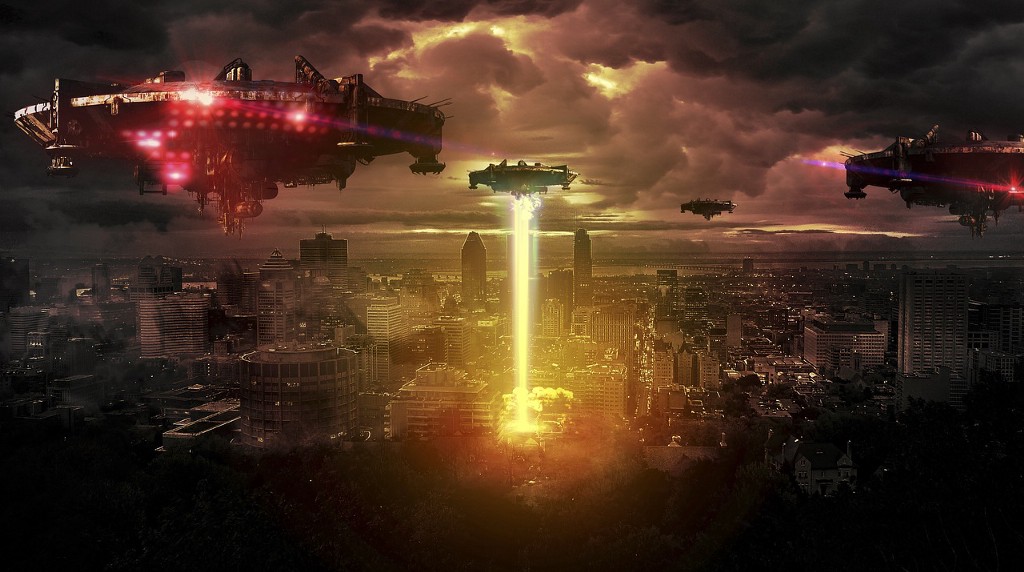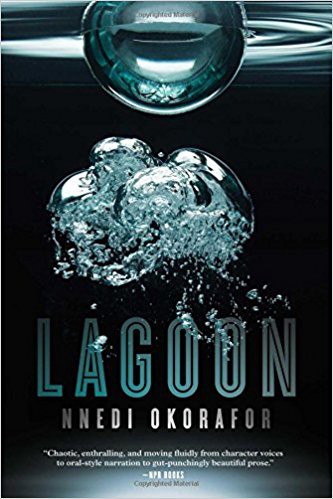Reading Lists
8 Books about Alien Invasions that Take Place Outside the U.S.
We’ve found 8 books about alien invasions outside the U.S. and U.K., so you can avoid the weird xenophobic undertones

If you read what is considered science fiction canon, you’d be forgiven for thinking aliens only invade the United States or United Kingdom. Though the genre is inching towards inclusivity, the canon, as always, is kind of stuck; most “classic” sci fi books are written by white American or British men. And since alien contact narratives often distill what a society thinks of foreigners, that means we have a lot of books in which malign forces either attack or infiltrate Western societies.
The archetypal alien invasion is War of the Worlds (1897) by H.G. Wells, your basic Imperialism allegory using the Martians as stand-ins for the British Empire. The framework is fairly straightforward: aliens, who are technologically advanced and hostile, attack Earth. Earth (read, the U.S.) fights back with the most advanced weaponry and most savage and ingenious soldiers. Usually we prevail. But aliens may not arrive with sturm und drang, but instead infiltrate, as in The Body Snatchers (1955) by Jack Finney, where the aliens drop pods and slowly replace humans, or The Andromeda Strain (1969) by Michael Crichton, where a super-microbe spreads from a downed satellite. This, too, can be easily read as a xenophobic metaphor.
So what happens when we take the U.S. and the U.K. out of the center of these stories? In my book Rosewater, I took the infiltrative approach. I set it in Nigeria, where we have experience of first contact from British colonizers. The book focuses on how aliens change humans, giving some of them special abilities while going about their own agenda.
Here are eight books that feature alien invasions outside the U.S. or U.K.
A Planet for Rent by Yoss
Yoss is the most popular and controversial science fiction writer you’ve (probably) never heard of. Yoss is from Cuba and this insane book is about aliens who appear benevolent to start with, helping us resolve the environmental mess we have made of the Earth, but soon turn humanity into an underclass on the outside of their utopia. It is episodic, heartbreaking, and a perfect picture of 1990s Cuba.
Lagoon by Nnedi Okorafor
Set in Nigeria, Dr. Okorafor’s book was a response to the insulting portrayal of Nigerians in the 2009 film District 9. One of the amazing things about this book is how it shows you the results of the invasion from different strata of Nigerian society and even different fauna. It gives the reader an idea of how extraterrestrials would be dealt with in the absence of a well-funded FBI-style organization, and it’s also a great view of Nigerian society.
What To Do When Your Time Machine is Broken
Micromegas by Voltaire
This is one of the earliest works of science fiction, from 1752. The eponymous Micromegas is a giant alien heretic from a giant planet, who visits the “insects” of Earth, around the Baltic Sea. He is surprised to find intelligent life and this book is concerned more about philosophy than space battles or technology.
The Flying Man of Stone by Dilman Dila
The fictional African country in this novella is likely based on Uganda, from which the writer hails. This story has the distinction of speaking about colonization both metaphorically and literally, with ancient aliens who bestow technology or power at a high price. It explores altruism, and the idea of stopping war with superior weaponry, and what that means to the everyday African.
The Three-Body Problem by Cixin Liu (translated by Ken Liu)
This First Contact story won the Hugo award in 2015 and has the honor of being the first full-length Chinese sci-fi work to be translated into English. With three interwoven time periods including the Cultural Revolution, this ambitious novel delivers on all fronts. The aliens (Trisolarans) are of the approaching malevolent armada variety, the ideas are dense, there are lush, mind-expanding set-pieces in the VR game Three Body, and the only parts that flag are the characters.
The Eternaut/El Eternauta by Hector Oesterheld and Francisco Lopez
This book is a little hard to find, and I only know of it because I read a version as a child and could not get it out of my mind. Popular in Latin America, with a creator who was “disappeared,” El Eternauta is a story of alien invasion, but also a political allegory. With the presence of a glowing alien dome, radioactive snow, and invulnerable creatures called “gurbos,” it is the best kind of science fiction with a blend of ideas and politics. It is well-drawn, intense and evocative of siege mentality. I am reliably informed that there is graffiti of the hero (Salvo) in Buenos Aires to this very day.
All You Need Is Kill by Hiroshi Sakurazaka
This is a light novel (raito noberu), which is the equivalent of an illustrated Young Adult book. What would have been a standard alien invasion and exo-skeleton-enhanced defence of the Earth is elevated by the presence of a 24-hour time loop a la Groundhog Day. The book was also adapted into a surprisingly effective movie called Edge of Tomorrow.
The Woman Who Thought She Was A Planet by Vandana Singh
Those of us who are fans of Vandana Singh are prepared to fight to the death defending her work. This story (part of a collection) shows us a woman who is inhabited by tiny aliens. Humorous and elegantly rendered, it is told from the perspective of her husband who is perplexed when, for example, she will not wear clothes since planets don’t need them.
Consider these a starter pack. Once you go looking, you’ll find a variety of works in translation from other cultural perspectives, and the question to ask yourself is this: When you look at the aliens, who do you see?

















